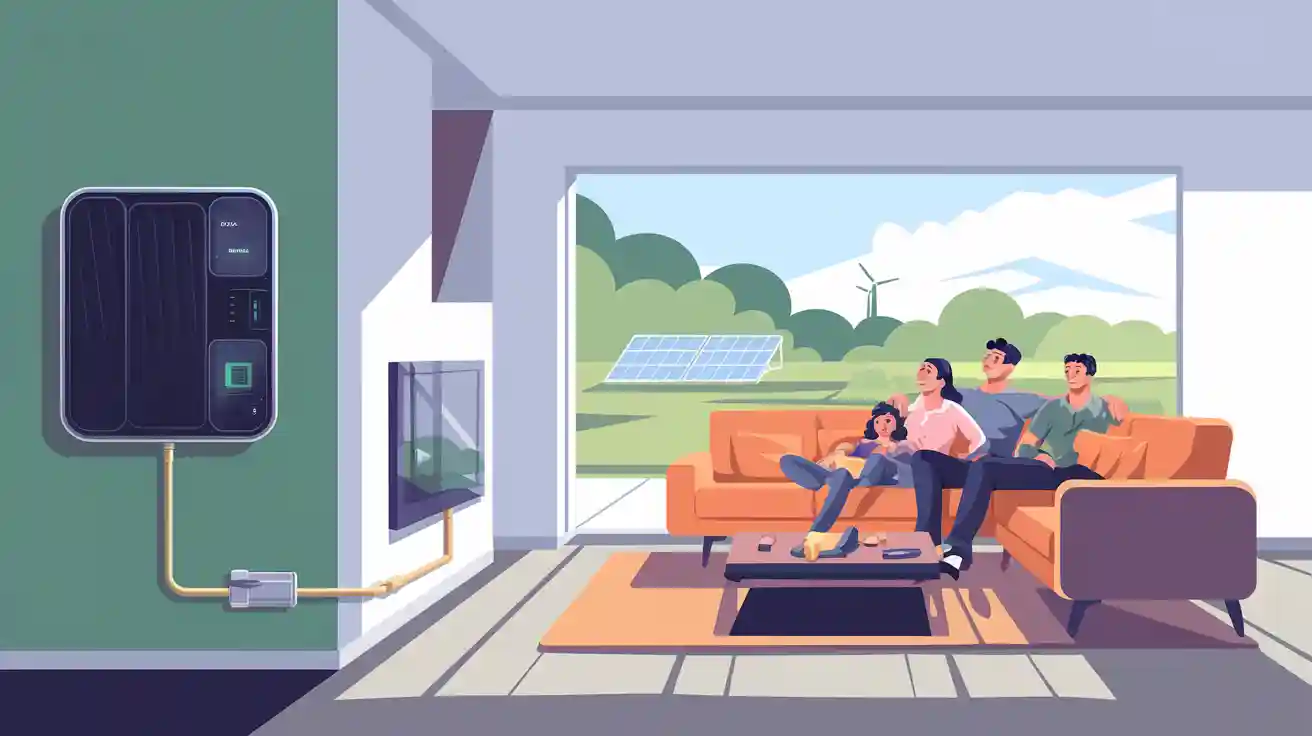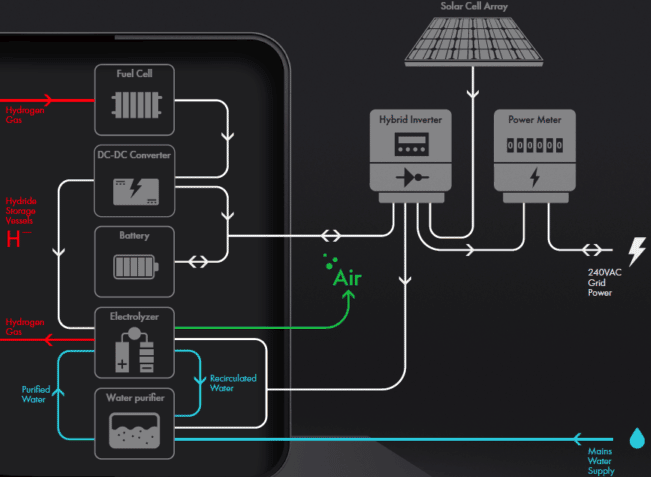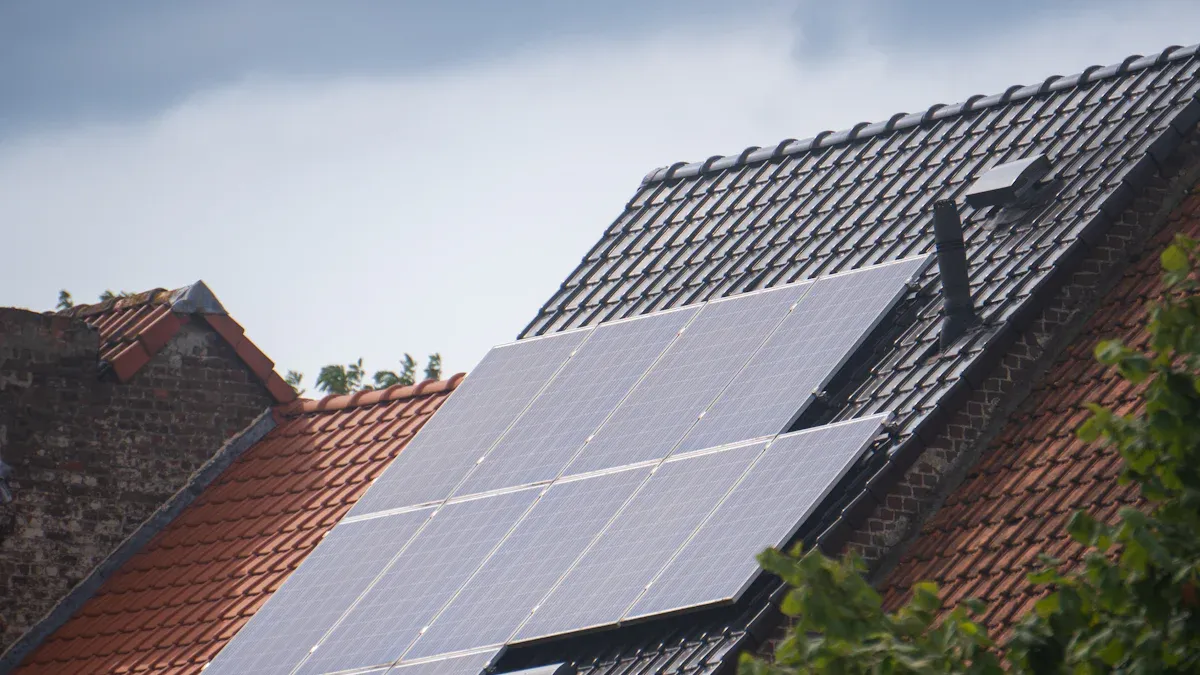Why Home Fuel Cells Are a Smart Choice

Imagine powering your home with a solution that saves money, reduces emissions, and ensures reliable energy. A home fuel cell does exactly that. This innovative technology transforms hydrogen into electricity, offering a cleaner and more efficient alternative to traditional power sources. The global fuel cell market has seen rapid growth, with sales jumping from $1.3 billion in 2013 to $2.2 billion in 2014. Countries like Japan lead in residential adoption, proving its practicality. By choosing this cutting-edge system, you can embrace a sustainable future while enjoying consistent power for your household.
Key Takeaways
Home fuel cells can cut energy costs by making power at home.
Using fuel cells lowers pollution since they only make water and heat.
They give steady power, even during blackouts, unlike regular sources.
Buying fuel cells saves money over time as they last long and need little care.
Fuel cells are cleaner than generators or solar panels and work in any weather.
Cost Efficiency of Home Fuel Cells
Lower Energy Bills
Switching to a home fuel cell can significantly reduce your monthly energy expenses. These systems operate with remarkable efficiency, converting hydrogen into electricity with minimal waste. Unlike traditional power sources, they generate energy on-site, eliminating transmission losses. This means you get more usable energy for every dollar spent. For example, a 250W fuel cell stack can produce electricity at approximately $0.30 per kWh. This cost is competitive, especially when compared to conventional grid electricity rates in many areas.
Advancements in fuel cell technology have also driven down costs. The amount of platinum required for proton exchange membrane (PEM) fuel cells has decreased, making these systems more affordable. Researchers are working to further reduce or even eliminate the need for expensive materials, ensuring that residential fuel cells remain a cost-effective choice for homeowners. By investing in this technology, you can enjoy immediate savings on your energy bills while contributing to a more sustainable future.
Long-Term Savings
Home fuel cells offer not just short-term benefits but also substantial long-term cost savings. Their durability and low maintenance requirements make them a smart investment for residential energy needs. Unlike traditional backup power sources like generators, fuel cells have fewer moving parts, reducing the likelihood of mechanical failures. This translates to lower repair and maintenance costs over time.
Additionally, hydrogen fuel cells provide a reliable and efficient energy solution that can serve as an emergency power or backup power source during outages. This reliability minimizes disruptions and potential costs associated with power loss. Over the years, the savings from reduced energy bills, minimal maintenance, and dependable performance add up, making home fuel cells a financially sound choice. By adopting this technology, you can secure both immediate and long-term cost savings while enjoying consistent energy for your household.
Environmental Benefits of Home Fuel Cells

Reduced Carbon Footprint
Switching to a home fuel cell can dramatically reduce your household's carbon footprint. These systems generate electricity by converting hydrogen into energy, producing only water and heat as byproducts. Unlike traditional energy sources, they emit no harmful pollutants during operation. If you use pure hydrogen, the emissions from your fuel cell system are nearly 100% lower compared to gasoline-powered alternatives. Even when hydrogen is sourced from natural gas, greenhouse gas emissions are cut by about 50%. This makes residential fuel cells a cleaner and greener choice for powering your home.
By adopting hydrogen fuel cells, you contribute to a healthier planet. These systems operate with higher thermodynamic efficiency than combustion engines. They skip the inefficient process of converting fuel into heat and then into mechanical energy. This efficiency not only reduces waste but also minimizes the environmental impact of your energy consumption. Choosing a home fuel cell means taking a significant step toward a sustainable future.
Cleaner Energy Production
Home fuel cells offer a cleaner way to produce energy for your household. Unlike fossil fuels, which release harmful emissions like carbon dioxide and nitrogen oxides, fuel cells rely on hydrogen to generate power. This process eliminates the need for combustion, ensuring that no toxic gases are released into the atmosphere. As a result, you can enjoy a reliable energy source without compromising air quality.
Fuel cells also provide a sustainable solution for emergency power needs. During outages, they deliver consistent energy without the noise or pollution associated with traditional generators. This makes them an ideal choice for residential use, especially in areas prone to power disruptions. By choosing residential fuel cells, you can ensure cleaner energy production while maintaining a dependable power supply for your home.
Energy Independence and Reliability with Home Fuel Cells

Consistent Power Supply
A home fuel cell ensures you never have to worry about power interruptions. These systems operate continuously as long as they are supplied with fuel, much like a rechargeable battery that never runs out. This means you can count on a steady energy supply, even during outages. Unlike traditional power sources, residential fuel cells generate electricity on-site, eliminating the need for long transmission lines that often cause power losses. With efficiency rates reaching up to 50% for electricity generation—and over 90% when heat recovery is included—these systems deliver reliable performance for your household.
Phosphoric Acid Fuel Cells (PAFCs), a popular choice for stationary applications, are known for their long operational lifespan. They require minimal maintenance, making them an excellent option for consistent energy production. Whether you need emergency power during a storm or a dependable backup power source for your home, a home fuel cell provides unmatched reliability. By choosing this technology, you can enjoy peace of mind knowing your energy needs are always met.
Reduced Grid Dependence
Imagine having the freedom to generate your own energy without relying on the grid. Residential fuel cells make this possible by serving as a primary or backup power source. Over 120,000 fuel cell combined heat and power (CHP) units have already been installed in Japanese homes, proving their effectiveness in achieving energy independence. These systems integrate seamlessly with home DC grids, offering a decentralized solution that reduces your reliance on traditional utilities.
Fuel cells are particularly effective for distributed generation, allowing you to produce energy right where it’s needed. This not only minimizes transmission losses but also supports sustainable energy practices. With efficiency rates exceeding 90% when heat recovery is utilized, residential fuel cells provide a practical and eco-friendly way to power your home. By adopting this technology, you can take control of your energy future while contributing to a more sustainable world.
Technological Advancements in Home Fuel Cells
Innovation in Fuel Cell Technology
Fuel cell technology has seen remarkable advancements, making it more efficient and accessible for residential use. Companies and startups are driving innovation by developing cutting-edge materials and designs that enhance performance. For example, advancements in nano-catalysts and electrodes by Nanoplexus have improved energy efficiency and storage. Similarly, Ionysis focuses on zero-emission fuel cells, paving the way for greener hydrogen production. Below is a table showcasing some of the latest breakthroughs:
Company/Startup | Innovation Description | Applications/Notes |
|---|---|---|
Nanoplexus | Innovations in nano-catalysts and advanced electrodes. | Aerospace, energy storage, carbon capture. |
BeFC | Creates paper-based biofuel cells as an eco-friendly alternative to traditional batteries. | Thin, lightweight, flexible, biodegradable. |
Blue World Technologies | Manufactures methanol fuel cells based on high-temperature PEM technology. | Combines methanol-reforming. |
ReCatalyst | Advances fuel cell catalyst production, targeting challenges posed by platinum usage. | N/A |
These innovations are not just theoretical. They are actively transforming how residential fuel cells operate, making them more reliable and cost-effective. By adopting these advancements, you can enjoy cleaner, more efficient energy for your home.
Future Potential
The future of residential fuel cells looks incredibly promising. Projections indicate that the global fuel cell market will grow from $7.29 billion in 2024 to $18.41 billion by 2034, with a compound annual growth rate (CAGR) of 9.8%. This growth is fueled by increasing demand for clean energy solutions and the adoption of hydrogen strategies by over 40 countries. Major markets like Korea, the United States, and Japan are leading this shift.
Stationary fuel cells, including micro combined heat and power systems, are driving this expansion. These systems provide both electricity and heat, maximizing energy efficiency for residential applications. As technology continues to evolve, you can expect even greater performance and affordability. By investing in residential fuel cells now, you position yourself at the forefront of a sustainable energy revolution.
Comparing Home Fuel Cells to Other Energy Solutions
Solar Panels
Solar panels are a popular choice for generating clean energy, but they come with limitations. While they harness sunlight to produce electricity, their efficiency depends heavily on weather conditions and daylight hours. On cloudy days or at night, solar panels cannot generate power, making them less reliable for consistent energy needs. In contrast, home fuel cells operate continuously as long as they have fuel, providing a steady power supply regardless of external conditions.
Fuel cells also boast higher thermodynamic efficiency compared to solar panels. They directly convert fuel into electricity without intermediary steps, ensuring minimal energy loss. Additionally, solar panels require significant roof space for installation, which may not be feasible for every residential property. Home fuel cells, being compact and versatile, fit seamlessly into most homes, offering a more practical solution for consistent energy production.
Generators
Traditional generators are often used as backup power sources, but they come with drawbacks. They rely on combustion engines, which emit harmful pollutants and contribute to noise pollution. Generators also require regular maintenance due to their moving parts, increasing long-term costs. Home fuel cells, on the other hand, produce electricity without combustion, making them a cleaner and quieter alternative.
Fuel cells also outperform generators in terms of energy density and refueling speed. For example, they can power a household for up to two days and refuel quickly, ensuring uninterrupted energy supply during emergencies. Unlike generators, which often struggle with efficiency, fuel cells deliver reliable power with minimal environmental impact. This makes them a superior choice for residential energy needs.
Other Alternatives
Other energy solutions, such as batteries and wind turbines, also have their limitations. Batteries store energy but lack the capacity to sustain a household for extended periods. Wind turbines depend on wind availability, making them unreliable in areas with inconsistent weather patterns. Home fuel cells address these challenges by offering higher energy density and consistent performance.
Advantage | Description |
|---|---|
Ongoing Power / Fast Refueling | Fuel cells can be refueled quickly, similar to gasoline vehicles, providing resilient power without interruption. |
Higher Energy Density | Fuel cells offer more energy per unit compared to batteries, capable of powering a household for two days. |
By choosing home fuel cells, you gain access to a reliable, efficient, and environmentally friendly energy solution that outperforms other alternatives. They provide the perfect balance of sustainability and practicality for residential use.
Home fuel cells deliver unmatched advantages in cost savings, environmental impact, and energy reliability. They operate with higher thermodynamic efficiency, converting hydrogen into electricity without harmful emissions. You can enjoy both power and heat through combined heat and power (CHP) systems, maximizing efficiency.
Reduce reliance on natural gas and coal.
Scale fuel cells to meet your energy needs.
By adopting this sustainable technology, you secure a cleaner, more efficient, and independent energy future. Take the step toward a smarter energy solution today!
FAQ
What is a home fuel cell, and how does it work?
A home fuel cell generates electricity by converting hydrogen into energy through an electrochemical process. It produces power without combustion, resulting in cleaner energy. You can use it as a primary or backup power source, ensuring consistent and efficient energy for your home.
Are home fuel cells safe to use?
Yes, home fuel cells are designed with safety in mind. They operate without combustion, reducing fire risks. Modern systems include advanced safety features to prevent leaks and ensure reliable performance. By following the manufacturer’s guidelines, you can enjoy a safe and efficient energy solution.
How much maintenance does a home fuel cell require?
Home fuel cells need minimal maintenance. With fewer moving parts, they experience less wear and tear compared to traditional generators. Regular inspections and occasional servicing keep them running efficiently. This low-maintenance design saves you time and money over the long term.
Can a home fuel cell power my entire house?
Yes, a properly sized home fuel cell can meet your household’s energy needs. You can scale the system to match your energy consumption. Many models also provide combined heat and power (CHP), maximizing efficiency by supplying both electricity and heat for your home.
How do home fuel cells compare to solar panels?
Unlike solar panels, home fuel cells provide consistent energy regardless of weather or time of day. They don’t rely on sunlight, making them a reliable option for uninterrupted power. Fuel cells also take up less space and offer higher energy density, making them a practical choice for many homes.
See Also
Understanding Home Fuel Cells: Functionality and Benefits
How Hydrogen Fuel Cells Operate: Insights for 2025
20kw Fuel Cells: Five Essential Industrial Hydrogen Applications


